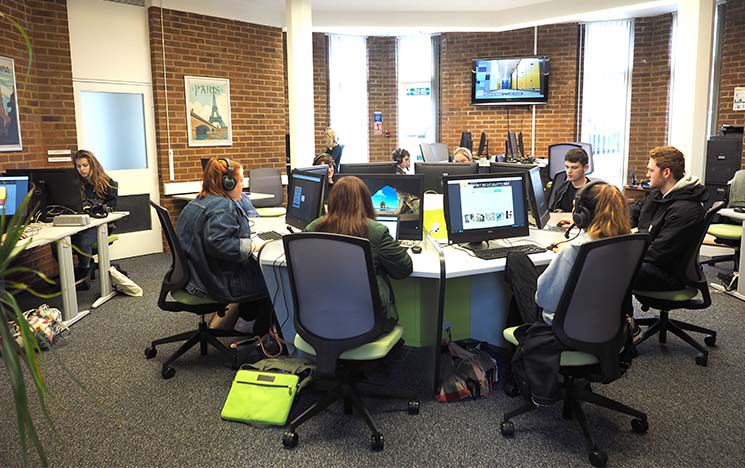Academic facilities
See the facilities available to all Sussex students
Find out about our facilities and learning spaces available for students studying modern language and English language courses.

The Media, Arts and Humanities Resource Centre is an open-access area which has facilities for autonomous study. You will have access to:
If you're looking for informal language practice, we have a Language Exchange noticeboard. We have also worked with the Students' Union to establish a regular Language Café, bringing together Sussex students who are learning foreign languages with international students who are studying English.
We are adding new stock to the main Library catalogue, so you can also search our collections online.
We are proud to be members of the Association of University Language Communities in the UK and Ireland (AULC) and the Confédération Européenne des Centres de Langues de l'Enseignement Supérieur (CercleS).
The Media, Arts and Humanities Resource Centre is open 9am-5pm, Monday to Friday.
It is based in the Arts A building on campus. Download our campus map to see the location of all campus buildings.
See the facilities available to all Sussex students
Find out about online learning resources, study skills workshops and tutorials
Learn about the types of degrees we offer